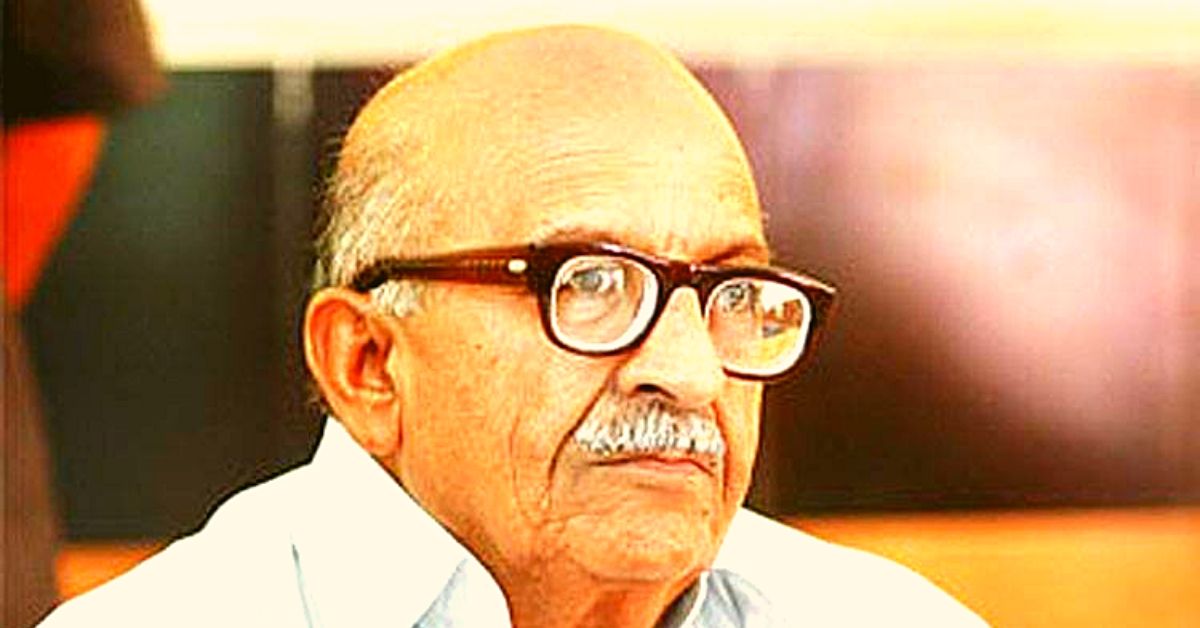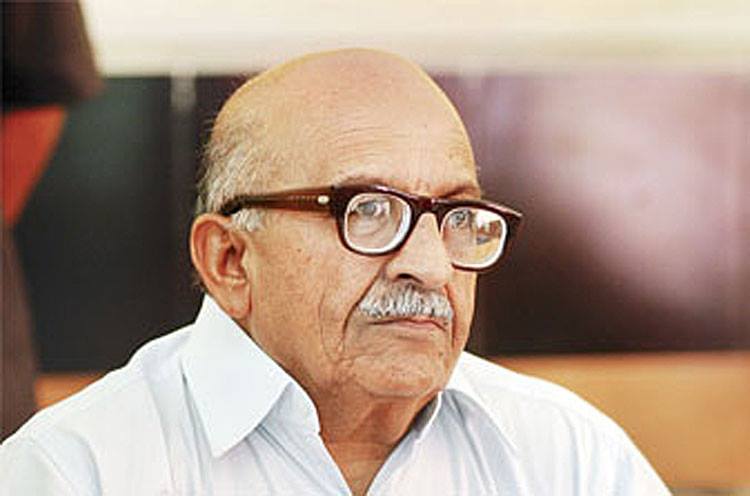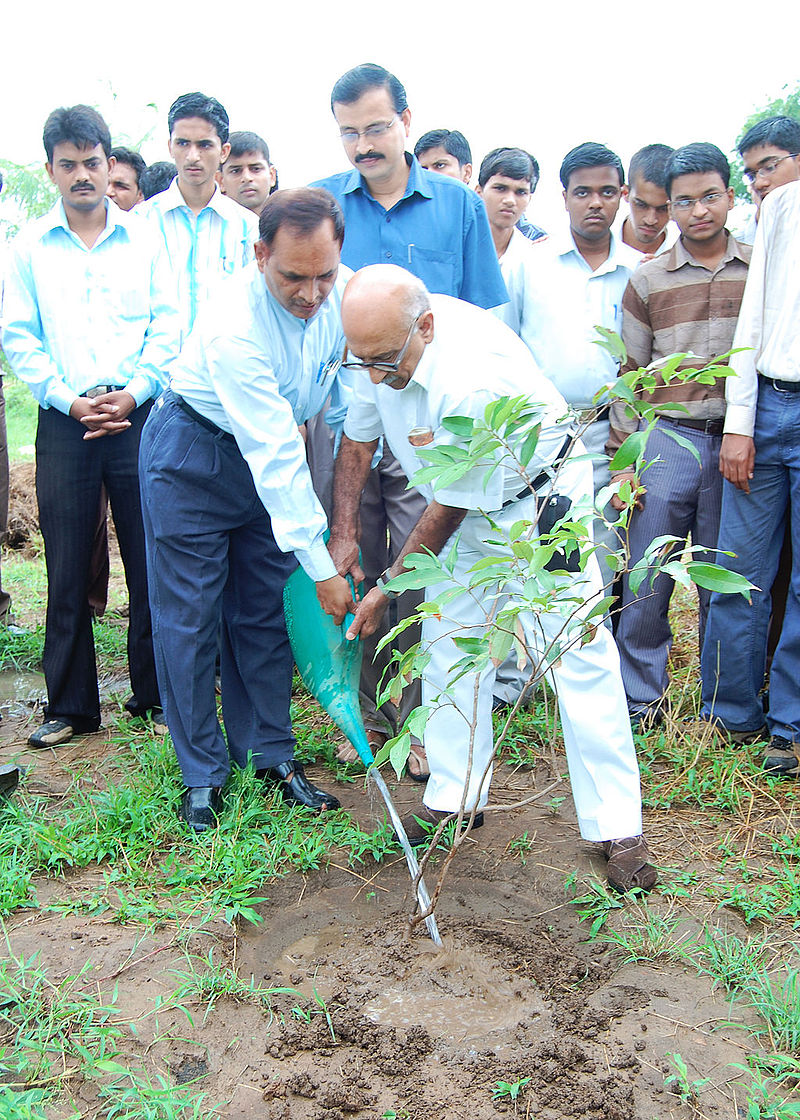MN Buch, The Legendary IAS Officer Who Was The Architect of Modern Bhopal
"Ultimately, integrity, ethics and decisiveness all come from motivation, and if an [IAS] officer is correctly motivated to serve the people, he is bound to be honest and ethical," wrote the #IAS officer who was honoured with India's third highest civilian award, the Padma Bhushan.

Mahesh Neelkanth Buch wasn’t your average civil servant. Bereft of political bias, this honest, efficient and secular Indian Administrative Service (IAS) officer is considered by many as the architect of modern Bhopal.
Awarded the Padma Bhushan in 2011 for his services to the nation, he was regarded as one of the leading authorities in urban development.
Born on October 5, 1934, in the pre-Partition city of Sahiwal in Pakistan’s Punjab province, MN Buch came from a well- respected and progressive family led by his father, an Indian Civil Service (ICS) officer, who was reportedly close to Sardar Patel.
After completing his education from St Stephen’s College, Delhi University, in 1954 and Pembroke College, Cambridge University, he joined the Madhya Pradesh cadre of the IAS.
Serving as Collector of Betul and Ujjain districts, he played a pivotal role in preventing, handling and controlling numerous communal riots, believing that if a district administration just did its job with the requisite efficiency and tactfulness, there was no way anti-social elements could disturb communal harmony in the area.

Naturally, he had become a very popular figure amongst the masses in these parts. However, it was during his tenure as a municipal administrator in Bhopal, where he really began to shine.
Buch played a pivotal role in turning a town of just 85,000 people to the administrative nerve centre of Madhya Pradesh; a state carved out of the erstwhile states of Madhya Bharat, Vindhya Pradesh and Bhopal.
It was in the 1960s and 1970s when Bhopal truly developed into a modern city, particularly the area south of its two famous lakes.
As ‘Super Secretary’ from 1971 to 1977, he headed Town and Country Planning, Housing, Environment, Forests, Local Self-Government, Public Health Engineering and Tourism departments simultaneously.
In other words, if there was any department concerned with the city’s development, he was responsible for it.
“We had a fairly clean slate. When the State was formed, officials shifted to the city with their families from Nagpur, Indore and Rewa. It was obvious that the old city could not sustain this population of 3.5 lakhs. Land, back then, was easy to acquire, and there was a lot of government land,” he once told The Hindu.
Ensuring that there wasn’t too much of a difference between the old and new city, MN Buch oversaw the integration and development of the sewerage and road infrastructure in the city. He was a strong advocate of zoning, warning against setting up hazardous industrial units in cities.
Interestingly, during his time in Bhopal, he also foresaw the potentially devastating effect of having the infamous Union Carbide plant dumped in the middle of Bhopal’s slums.
“MN Buch, the planning director of Bhopal in 1975, ordered the company to relocate in an area referred to as “Bhopal’s Obnoxious Industries Zone,” after the central authorities had granted approval for construction in the area of the slums. It was only after he was transferred out of his office in Bhopal that the plant re-appeared at the disaster site—and subsequently became the source of one of the most horrible instances of industrial bloodletting in the 20th century,” writes Rajendra Ramlogan in his book, ‘The Developing World and the Environment.’
Besides his competence and foresight, he was a man of real integrity and ethics. He believed that the sole purpose of civil servants was to deliver welfare to the people without an ounce of obstructionism.
LS Hardenia, a veteran journalist and a friend of MN Buch, recalls one incident when he was Vice-Chairman of the Delhi Development Authority.
“On the very first day of taking charge of Vice Chairman of DDA, he came to know that one employee, a Sardarjee was being harassed by many employees and officers and bribes were being demanded from him. Buch, after coming to know the truth about what Sardarjee had said took disciplinary action against all those bribe seekers and freed him (Sardarjee) from all his tormentors,” writes LS Hardenia for the Milli Gazette.
Naturally, his integrity did not suit the higher-ups at the DDA and Central government. He was soon relieved from his duties, spending the whole of 1980 warming the benches without a post. Nonetheless, appreciation for his values and work came in the most unexpected way.
Also Read: 5 Inspiring Civil Servants Who Sacrificed Their Lives in Service of The Country
In a collection of essays, he wrote titled ‘An India Reimagined,’ Buch recalls one such incident when he hailed an auto rickshaw from the India International Centre to his official residence at Teen Murti Lane.
When he reached his destination, the auto driver refused to take money. On being asked why the auto driver said:
“You do not remember me, but I had come to see you in DDA. I had registered for a house which I should have been allotted years ago, but despite my wearing out several pairs of shoes, I got no solution. One day, I came to Vikas Minar and found no guards, no security personnel. I entered the office building and asked someone where I could meet the head. I was told to go to the fifth floor. Your nameplate was on the door. I asked the orderly how I could meet you and, to my surprise, he told me to open the door and walk in. You were doing some work and asked me to sit down. After you finished [with] the file, you asked me my problem. I, a mere auto-rickshaw driver, was not only heard, but the housing commissioner was sent for and, two hours later, I walked out with my allotment order and occupation order. I can never forget my debt of gratitude to you and will never take any money from you,” recalls Buch.
For this civil servant, this was the ultimate accolade.
Another mark of his character was his ability to take criticism on the chin. When the Indira Gandhi government declared Emergency in 1975, Buch was a municipal administrator in Bhopal. Despite the suspension of all fundamental rights including freedom of the press, he sent out a circular to all editors in the city urging them not to hesitate in criticising his administration’s work.
It was a circular which the Shah Commission, which was set up to investigate the excesses of the Emergency, took note of and appreciated.
Evidently, for a man of such character stewing in a system that did not accurately regard his capabilities or vision for a better India, the obvious option was to take voluntary retirement from the government service in 1984.
“He fought the 1984 Lok Sabha as an independent from his beloved Betul. He lost by a margin of 30,000 votes to the Congress candidate, the hockey player Aslam Sher Khan. In the wake of Indira Gandhi’s assassination even a lamppost would have won on the Congress ticket. That Buch did so well (with no money at all) is reflective of how much he was still loved by the people of Betul,” writes historian Ramachandra Guha in a column for the Hindustan Times.
Subsequently, he started a non-profit called the National Centre for Human Settlements and Environment in Bhopal, which advised various state governments on issues concerning urban planning and the environment.
Even the Rajiv Gandhi government approached him to take up the position of “Vice President of Urbanisation Commission with the rank of a cabinet minister,” while the Madhya Pradesh government appointed him as the Vice Chairman of State Finance Commission.
Besides working in an advisory capacity, he was also a prolific thinker and writer for various media and think-tank publications in both Hindi and English. He also went onto write four books on urban planning as well, and even today, experts in the field refer to his works.

“He also served as Chairman of the Empowered Committee for the New Vidhan Sabha building in Madhya Pradesh for which he was awarded the Aga Khan Award,” says this description.
At no point was he ever afraid of voicing his concerns about the state of the nation. When the UPA government was re-elected in 2009, he wrote five letters to Prime Minister Manmohan Singh on a plethora of issues ranging from higher education to the civil services.
One letter, which may hold value to fellow civil servants, stated that the government must “mercilessly weed out from the IAS, IPS and Indian Forest Service all those who are slackers, derelict in their duty, partisan and corrupt”. Following on from this wish, he also suggested that district officers should hold personal responsibility for the execution of development projects under their jurisdiction while empowering district magistrates “to take action against their subordinates and tell the politicians that any interference in this behalf will not be tolerated”.
On June 6, 2015, he passed away following a stroke at the age of 80. Although it’s challenging to capture the entirety of legacy, it would be best to use his own words.
“A civil servant, while adhering to the highest code of integrity and ethics, must still rapidly implement a welfare policy and not act as an obstructionist. Obstructionism is itself a deviation from both integrity and ethics because it prevents the government from performing its primary task of delivering welfare to the people. Ultimately, integrity, ethics and decisiveness all come from motivation, and if an officer is correctly motivated to serve the people, he is bound to be honest and ethical.”
(Edited by Gayatri Mishra)
Like this story? Or have something to share? Write to us: [email protected], or connect with us on Facebook and Twitter.
If you found our stories insightful, informative, or even just enjoyable, we invite you to consider making a voluntary payment to support the work we do at The Better India. Your contribution helps us continue producing quality content that educates, inspires, and drives positive change.
Choose one of the payment options below for your contribution-
By paying for the stories you value, you directly contribute to sustaining our efforts focused on making a difference in the world. Together, let’s ensure that impactful stories continue to be told and shared, enriching lives and communities alike.
Thank you for your support. Here are some frequently asked questions you might find helpful to know why you are contributing?


This story made me
-
97
-
121
-
89
-
167











